

With many firms tilting towards digital transformation, cloud computing has continued to gain an unprecedented rate of adoption across the globe. A recent study by Facts and Factors predicts that the global cloud computing market will jump from $429.6 billion in 2021 to $1.02 trillion in 2028 at a CAGR of 15.80%.
Given this growing demand, many wonder how to start a career in cloud computing and increase their chances of landing roles in the cloud job market. At the same time, others who have been in the cloud computing landscape for some time are concerned with the best ways to update their knowledge to remain competitive and accelerate their growth in the field.
If you’re in either of these categories, earning a Google Cloud Platform (GCP) certification is one of the best ways to get ahead. GCP certifications, apart from measuring your proficiency in some critical competencies using Google Cloud technologies, also equip you with the requisite skills and knowledge to excel in specific Google Cloud technology roles at industry standards.
If you’re interested in getting started with a GCP certification, here is a comprehensive discussion of the best GCP certifications in 2022, the details of each course, and how they could make you stand out and set you up to achieve your career goals.
The Google Cloud Platform certification is an excellent program that’s designed to get you ready and provide you with the skills you need to progress your cloud computing career professionally. It demonstrates that you’ve gone through lessons, training, and real-world case studies in cloud computing.
Here are some of the key reasons why GCP certification is valuable for a career in cloud computing:
Many IT companies agree that a candidate’s certification is a key consideration when evaluating them for open positions. The GCP course tests your abilities by giving you a hands-on project in the last chapter of the course to confirm your competence in the field, which you can add to your portfolio to fill the gap if you have little or no job experience. This boosts your chances of getting selected for an interview and potentially landing your first job.
A cloud computing certification such as GCP can benefit your career even if you’re already employed. Its sophisticated tutorials and hands-on projects will increase your knowledge and experience with Google cloud services, helping you to thrive in your role, grow in your career, and ultimately making you more appealing to potential future employers.
With career growth is sure to come a higher salary. In a recent survey, ZipRecruiter found that the average yearly earning for a cloud engineer in the United States is $127,554. Meanwhile, TechRepublic records that Google Cloud Professional Cloud Architect stands among the top three highest-paying certifications in 2022. Augmenting your cloud computing skills with a globally recognized certification like GCP can undoubtedly contribute to increasing your yearly income.
Obtaining an industry-recognized certification, such as GCP, can demonstrate your dedication to your profession if you are currently employed in an IT position. It demonstrates that you have the necessary training and trust in your abilities, enabling you to work on numerous firm initiatives. Plus, because GCP is well-known worldwide, it helps simplify the application process if you want to move and work elsewhere.
You must master all the topics and services in a professional certification program like GCP to receive the certificate. This helps you remain attentive to them for a long period and properly absorb the idea. Additionally, you will have a variety of tasks to do during the program that you may add to your portfolio to strengthen your application.
No knowledge is wasted; therefore, regardless of how informed you are about cloud computing, enrolling in professional certificate programs like GCP will expand your understanding of the subject beyond its typical scope.
If you’re considering a career in cloud computing, or want to go further in a career you’ve already begun, Google Cloud Platform certification is almost certainly worth the time and effort.
Continuous learning broadens your horizons and benefits your present and future roles in IT organizations. It’s also beneficial to include additional terms about your training on your CV and support them with certificates that are acknowledged in the field, such as the GCP certificate.
Furthermore, modern cloud migration techniques frequently favor deployment and maintenance over modernization and leisure. GCP certifications close the knowledge gap by emphasizing native cloud competencies, which will be at the core of the cloud revolution.
In addition, the certification program gives you a chance to put your case analysis, technical watchpoint identification, and solution development skills into reality. Through practical Qwiklabs projects, you will implement solution components and gain practical experience that you can showcase to current or future employers. This will help them distinguish between those who merely profess to understand GCP and those who really do.
The GCP certification is structured in three levels—foundational, associate, and professional—to make it easy for people of varying cloud computing expertise to get started. Your level of cloud computing experience will determine which GCP certification you pursue.
People in non-technical professions who are familiar with the fundamentals of cloud computing, Google Cloud products, services, tools, and characteristics are eligible for the Foundational Google Cloud certification. If you are new to the field of cloud computing, this is where you should start.
The Associate Google Cloud certification level addresses intermediate Google Cloud skills, including creating, managing, and auditing platform-based projects. People who have used cloud computing for at least six months should choose this certification.
Each professional GCP certification addresses a particular position or subject with high-level abilities. On the platform, many professional certificates study more in-depth methods relating to both technological and business principles.
The first two certification levels for GCP—foundational and associate—have only a single version each, while the third level, professional, features about eight certifications depending on the specific role, such as data engineer, cloud architect, and cloud developer.
Here’s some more information about each certification to help you determine which is right for you to pursue.
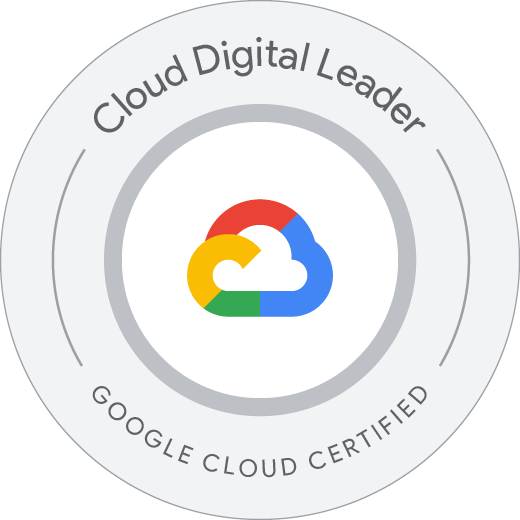
The foundational certification will evaluate broad cloud expertise emphasizing GCP and its offerings. Google also provides a study guide that complements the Cloud Digital Leader exam.
This certificate is ideal for anyone seeking or holding technical roles who would benefit from a fundamental comprehension of the cloud platform and its location within the more significant IT infrastructure.
You can move straight to the associate or professional certifications if you already have a solid understanding of Google Cloud.
Key features
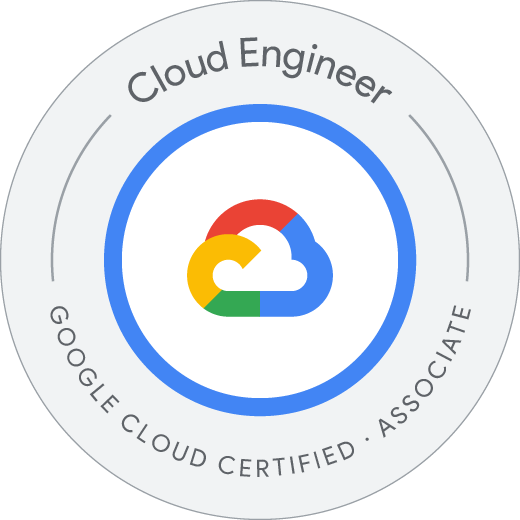
This certificate is designed for individuals who maintain one or more deployed solutions that use Google-managed or self-managed services on Google Cloud using Google Cloud Console and the command-line interface.
Organizations typically hire associate-certified employees to function as cloud engineers.
You should ideally have at least six months of experience developing on Google Cloud before applying for an associate certification.
The certification exam that follows this course assesses your ability to:
Key features
People with a solid understanding of cloud architecture and Google Cloud are the target audience for a professional certification. People in this category include cloud practitioners who are capable of designing, building, and managing strong, secure, scalable, and dynamic cloud solutions to drive corporate objectives.
There are about eight professional GCP certification courses available. You are not limited in the number of certifications you can receive at this level. However, it’s best to choose the one most related to your area of expertise and branch out from there as necessary.
Whichever one you choose, it’s recommended to have at least three years of experience in the cloud environment and at least one year of experience working with Google Cloud before beginning this certification.
Key features
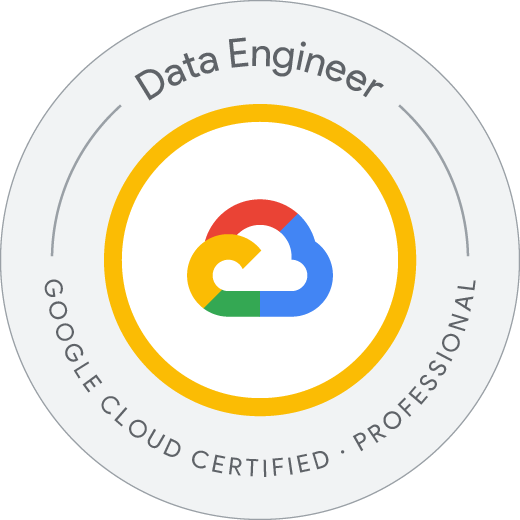
The Professional Data Engineer certification exam assesses your ability to:
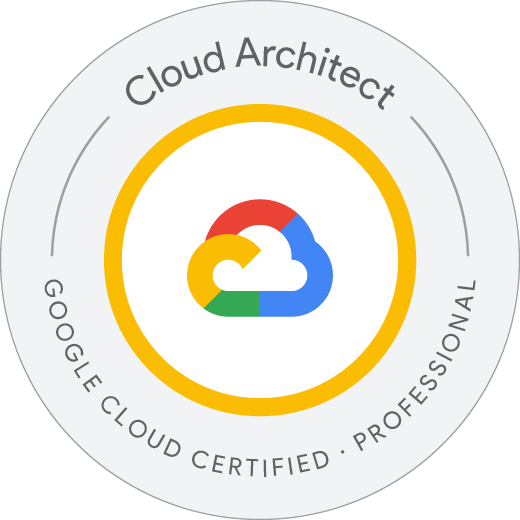
The Professional Cloud Architect certification exam tests your ability to:
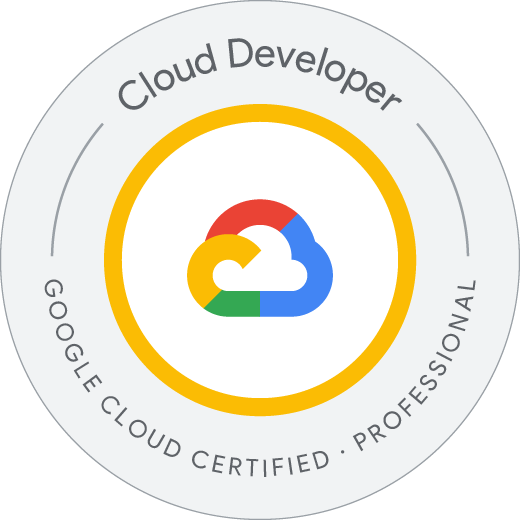
The Cloud Developer certification assesses your ability to:
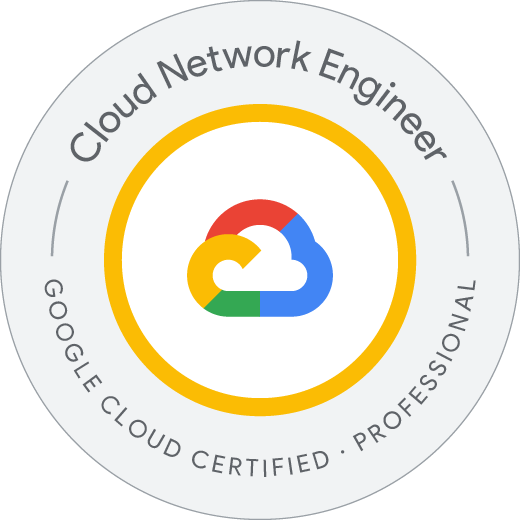
The Cloud Network Engineer certification examines your ability to:
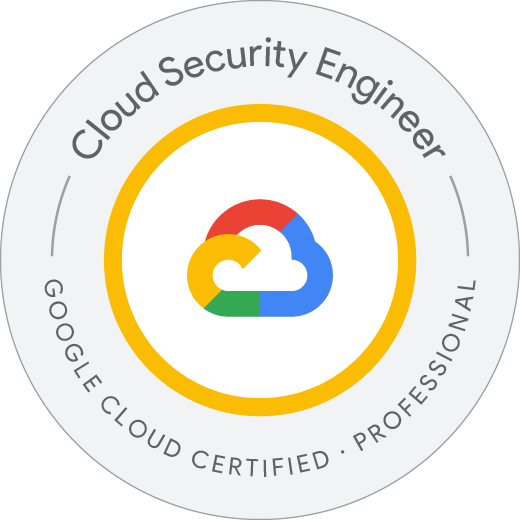
In the Cloud Security Engineer certification, you will be assessed on your ability to:
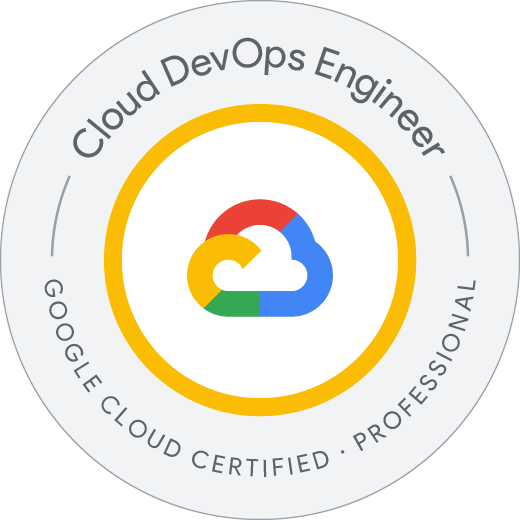
The Cloud DevOps Engineer certification exam tests your ability to:
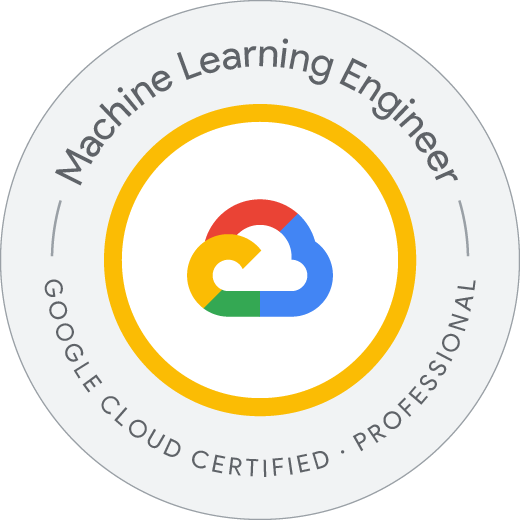
The Machine Learning Engineer certification exam covers the following:
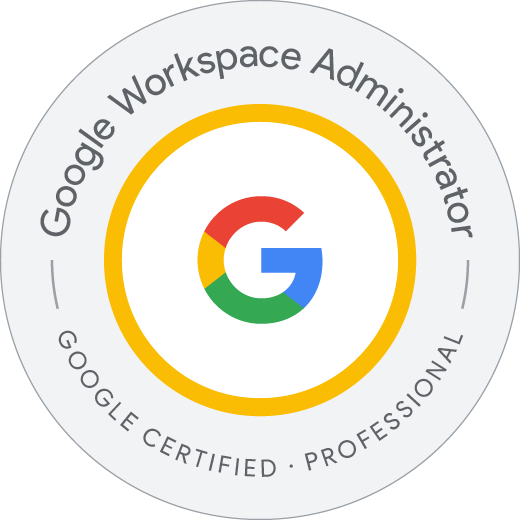
The Google Workspace Administrator (formerly Collaboration Engineer) exam tests your proficiency with the following tasks:
In order to become Google Cloud certified you have to complete tests that demonstrate a solid knowledge base. These tests are pass/fail with no available grading or scoring. Even if you’re familiar with the fundamentals of the Google Cloud Platform, you’ll want to brush up on the relevant knowledge before taking the exam. To provide you with a well-designed learning experience, Google partners with Coursera to provide online training courses and resources.
When preparing for Google Cloud certification, the steps listed below can help:
Get a general understanding of the significance of Google Cloud certification and whether it’s required for you. You don’t necessarily need to be Google Cloud certified to work in tech. Knowing whether you require the certification or not can save you time and help you prepare.
The certification level will be determined by your past professional experience and future goals.
These credentials do not require any prior work experience. It does come highly recommended, though, for Associate and (especially) Professional certifications. It requires more than reading about Google Cloud to truly understand what it is and how it works. With the Google Cloud free tier, Google offers free possibilities for practical learning.
Exams for Google Cloud certifications are not easy to pass. You must have extensive knowledge of the respective discipline(s) before taking the exam. Numerous platforms offer comprehensive online Google certification courses. To feel more prepared before the exam, you can also locate exam simulations and questions close to the real thing. Platforms such as Udemy, Coursera, and Cloud Academy offer such courses.
This can be accomplished by studying practice questions. Google offers sample test questions and a preparation manual for its certification exams.
You can register and choose whether you want to take the exam in person or online once you feel ready. The professional certification costs $200, the associate cloud engineer certification is $125, and the foundational certificate is $99.
The 90-minute foundational certificate test is timed. The associate and professional, also timed, last for two hours each. They consist of multiple-choice questions you must respond to in the allotted time. Results are presented as passes or failures.
If you fail the test, you have 14 days to retake it. In a single year, you are permitted up to four attempts. However, you will have to wait a year to retake the test if you don’t get the required passing mark. So make sure you are confident in your knowledge and preparation going in.
Given the abundance of alternatives, picking the proper certification may seem impossible. However, you should choose a certificate most compatible with your current professional path if you’re trying to add new talent to your resume. Keep in mind that each accreditation is valid for two years—so plan around that time frame when making upskilling strategies.
Ask yourself the following questions if you’re confused about which qualifications are best for you right now:
Asking these questions will provide a vivid picture of the type of Google Cloud Platform certification that’s most suitable for you.
Go deeper in your professional education and stand out from other candidates with the best data science courses available online.


Franklin Okeke is a regular contributor to ServerWatch, as well as an author and freelance content writer with over 5 years of experience covering cybersecurity, artificial intelligence, and emerging technologies. In addition to pursuing a Master's degree in Cybersecurity & Human Factors from Bournemouth University, Franklin is an entrepreneur with a passion for startups, innovation, and product development. His writing also appears regularly in TechRepublic, Enterprise Networking Planet, and other leading technology publications.
Property of TechnologyAdvice. © 2026 TechnologyAdvice. All Rights Reserved
Advertiser Disclosure: Some of the products that appear on this site are from companies from which TechnologyAdvice receives compensation. This compensation may impact how and where products appear on this site including, for example, the order in which they appear. TechnologyAdvice does not include all companies or all types of products available in the marketplace.